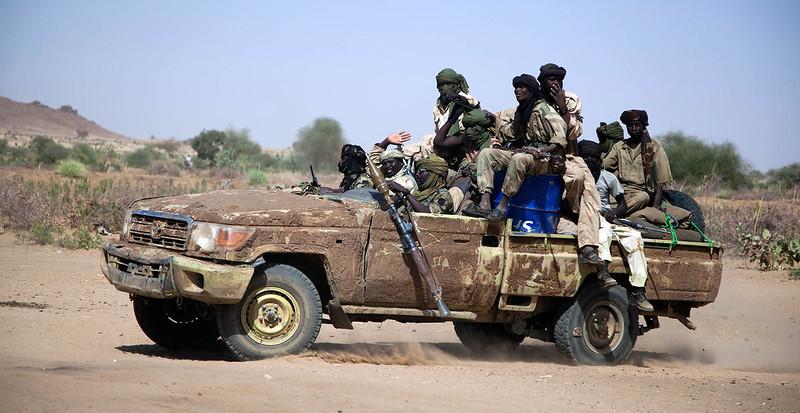End of an Era: RSF Victory in El-Fasher Marks Army’s Defeat in Darfur

In a major turning point in Sudan’s brutal civil conflict, the Rapid Support Forces (RSF) have reportedly seized full control of El-Fasher, the capital of North Darfur, effectively ending the Sudanese army’s presence in the region. The capture marks a critical shift in power and deepens the humanitarian crisis in the war-torn western part of the country.
A Strategic City Falls
El-Fasher, long considered the last stronghold of the Sudanese Armed Forces (SAF) in Darfur, has been at the center of fierce battles for months.
The city’s fall to RSF forces represents not only a military victory but also a symbolic triumph, cementing the paramilitary group’s dominance across the Darfur region.
Local sources confirmed that RSF units entered central El-Fasher after days of intense fighting that left dozens dead and hundreds injured. Eyewitnesses reported widespread gunfire, explosions, and looting as the army’s resistance collapsed.
Satellite images and verified footage show RSF fighters occupying major sites, including the governor’s residence, military command headquarters, and El-Fasher Airport.
The Battle for El-Fasher
The battle for El-Fasher had been raging since early summer, with both sides accusing each other of targeting civilians and blocking humanitarian aid. The city, once home to nearly a million people, had become a refuge for thousands displaced by violence across Darfur.
Humanitarian workers on the ground describe catastrophic conditions — with hospitals overwhelmed, food supplies cut off, and water scarce.
The United Nations Office for the Coordination of Humanitarian Affairs (OCHA) warned earlier this week that the situation in El-Fasher had reached a “breaking point,” with civilians trapped between the warring factions.
Following the RSF’s advance, many residents fled toward the outskirts of the city or sought shelter in makeshift camps, fearing reprisals and looting.
RSF’s Expanding Control in Darfur
With El-Fasher under its control, the RSF now dominates nearly all of Darfur’s major cities, including Nyala, Geneina, and Zalingei.
The group, led by Mohamed Hamdan Dagalo (Hemedti), has effectively consolidated power across western Sudan — an alarming development for the international community, which has accused the RSF of war crimes and ethnic violence.
Hemedti has portrayed his forces’ victory as a step toward “stability and justice” in Sudan, though human rights organizations warn that the RSF’s control could worsen atrocities.
An RSF spokesman declared:
“El-Fasher is liberated. The people of Darfur will now see true peace under our protection.”
However, reports from the ground contradict those claims, describing mass civilian displacement and property destruction.
Sudanese Army’s Decline
The Sudanese Armed Forces, commanded by General Abdel Fattah al-Burhan, now face one of their most significant defeats since the civil war erupted in 2023.
Losing El-Fasher not only strips the army of its foothold in Darfur but also damages its credibility among allied tribal and political groups.
Analysts say that the fall of El-Fasher may push the army to shift its focus eastward, where it still retains some control near Port Sudan.
Military sources admit that limited resources and stretched supply lines made defending Darfur increasingly difficult.
A Sudanese defense analyst noted:
“This marks the end of the army’s presence in western Sudan. The RSF now has uncontested control over Darfur — a development that changes the entire balance of the war.”
Humanitarian Fallout
The humanitarian consequences of the RSF’s victory are devastating.
UN agencies estimate that over 600,000 civilians could be directly affected by renewed fighting, displacement, and shortages of food, medicine, and water.
Aid convoys have struggled to enter Darfur due to insecurity and damaged infrastructure.
International humanitarian groups have urged both sides to allow safe passage for civilians and guarantee humanitarian access to El-Fasher, where tens of thousands remain trapped.
Doctors Without Borders (MSF) said its facilities in the city were overrun with wounded civilians, while many medical staff had fled or gone missing amid the chaos.
Regional and Global Reactions
The African Union, United Nations, and United States have all condemned the violence and called for an immediate ceasefire.
The UN Security Council held an emergency meeting, warning that the fall of El-Fasher could lead to a “wider humanitarian catastrophe” in Sudan.
The U.S. State Department described the situation as “deeply concerning,” reiterating that both sides must stop targeting civilians and commit to peace talks.
However, diplomats acknowledge that negotiations remain stalled, with neither the RSF nor the army showing genuine willingness to compromise.
Neighboring countries such as Chad and South Sudan have also expressed alarm, fearing that the escalating conflict could spill across borders, worsening regional instability.
What This Means for Sudan’s War
The capture of El-Fasher effectively marks a shift in control from the central army to the paramilitary RSF in western Sudan.
This new balance of power could either push both sides toward negotiated peace or ignite further fragmentation, as local militias and ethnic groups vie for influence.
Experts warn that without swift diplomatic intervention, Darfur could descend into total lawlessness, reminiscent of the early 2000s atrocities that left hundreds of thousands dead.
The UN Refugee Agency (UNHCR) estimates that over 10 million Sudanese are now displaced, making it one of the world’s largest humanitarian crises.
Final Thought
The fall of El-Fasher marks not only the end of the army’s control in Darfur but also a grim milestone in Sudan’s ongoing civil war.
As the RSF consolidates power, civilians continue to bear the brunt of the violence, facing hunger, displacement, and fear.
Whether this victory leads to peace or further chaos depends on what comes next — but for now, El-Fasher stands as both a symbol of military dominance and a test of the world’s resolve to act before Sudan’s tragedy deepens beyond repair.
- AI
- Vitamins
- Health
- Admin/office jobs
- News
- Art
- Causes
- Crafts
- Dance
- Drinks
- Film
- Fitness
- Food
- Juegos
- Gardening
- Health
- Home
- Literature
- Music
- Networking
- Other
- Party
- Religion
- Shopping
- Sports
- Theater
- Wellness


